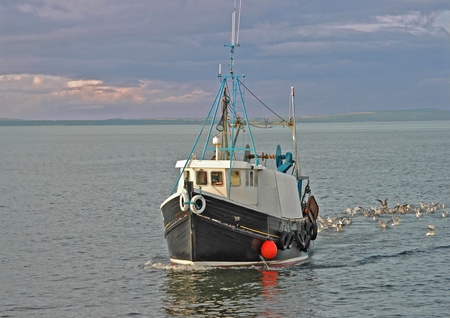A University of Aberdeen scientist will present the findings of a report that shows although climate change is already having an impact on fish and fisheries globally, there is still time for the Scottish fishing industry to get better prepared to adapt to changes in fish growth and shifts in stock distribution.
Dr Tara Marshall will present the findings of the report, which was commissioned by Fisheries Innovation Scotland, at the Species on the Move conference, which is taking place in Kruger National Park, South Africa next week (July 22-29).
Dr Marshall’s report collates state-of-the-art insights from a climate change conference held at the University of Aberdeen in November 2018, which was attended by experts from around the world as well as representatives from the Scottish fishing industry.
Dr Marshall said: “Scotland’s fishing grounds in the North Sea are a global hotspot for warming waters. The workshop identified ways in which the future for Scottish fishing is going to be different from we are familiar with currently, but also ways that we can get ready for it now.
“Understanding and responding to these changes will be essential as climate change is already impacting zonal attachment and yields, both of which are key to operating a successful and sustainable business.
“Among the key takeaways from the workshop is that climate warming is a big deal especially in the North Sea. The fishing industry doesn’t fully appreciate the scale of changes that have already taken place and will continue to impact fish over the foreseeable future. Scientists and managers can work with the fishing industry to identify successful adaptation strategies. We also recognised that the fishing industry generates a wealth of relevant information that has yet to be fully utilised. Testing scientific models describing species distribution in the future can benefit from having fisheries data as a sense-check on model predictions."
Kara Brydson, Executive Director of Fisheries Innovation Scotland said “ “FIS supports knowledge exchange between the seafood industry and scientists, and this project has not only raised awareness of how, right now, climate change is impacting profitable and sustainable fisheries, but also to work together, all hands on deck, to find innovative ways to prepare for a changing world.
For more information, the full report can be viewed at: https://fiscot.org/wp-content/uploads/2019/07/FIS028.pdf


